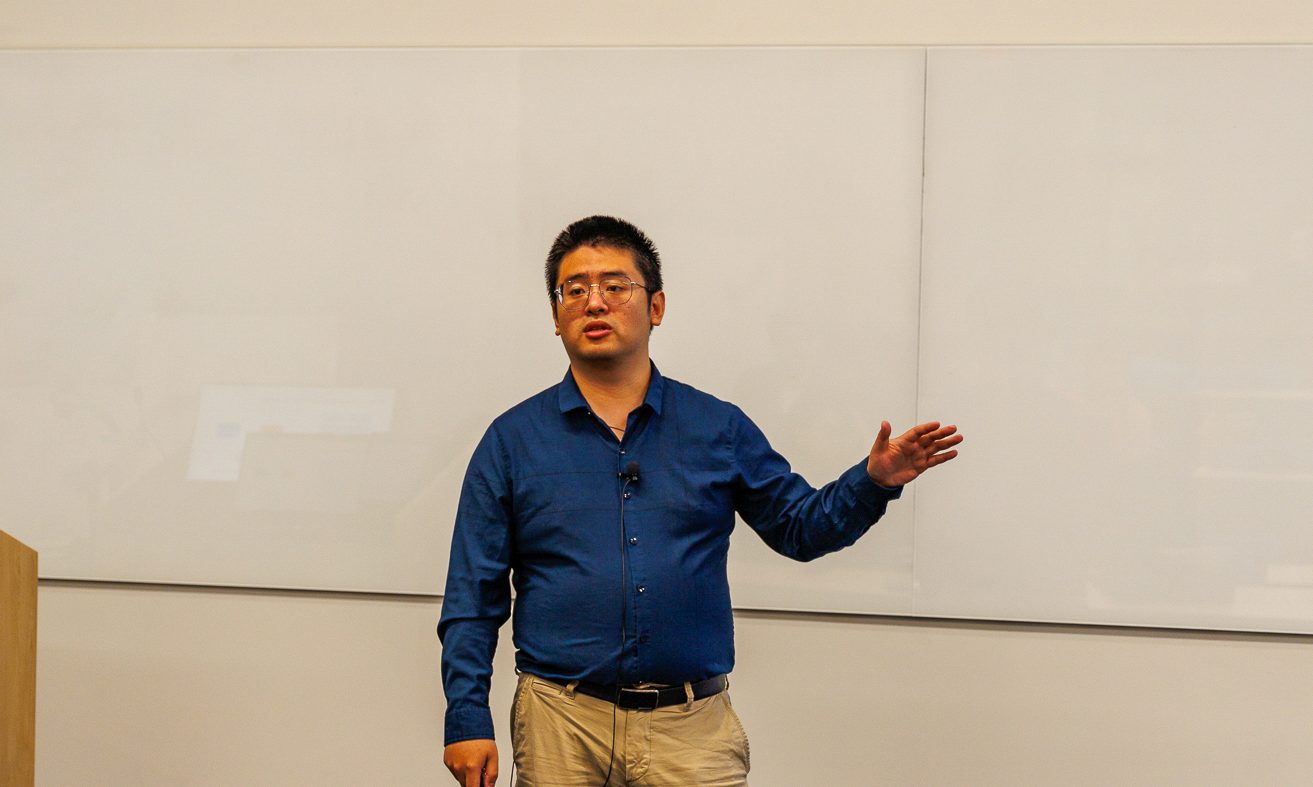Yicong Huang, PhD, Information Systems Group
Yicong Huang will graduate with a PhD from the Information Systems Group in the Computer Science department. Huang and his fellow graduates will walk on June 16 in the Bren Events Center.
His research focuses on big data management, data-processing systems, and machine learning systems. Huang takes a systems-driven approach by co-designing the key components of modern data-intensive pipelines, including workflow engines, UDF debugging frameworks, pipelining optimizers, and machine learning acceleration systems for streaming data. To optimize performance, usability, and scalability, he integrates techniques across data management, distributed systems, program analysis, and machine learning.
What is your favorite memory at UCI?
I’ve made countless meaningful memories over my 11 years at UCI, but one moment stands out in particular. In the fifth year of my Ph.D., I had the opportunity to design and teach my own course at UCI: ICS 80, Data Science and AI/ML Using Workflows. The course was specifically created for non-CS majors, including students from Biology, Economics, and Public Health, most of whom had little or no coding experience. I broke down complex concepts into simple and visual explanations, all without requiring students to write a single line of code. At the conclusion of the course, students presented capstone projects related to their fields of study. Watching them successfully apply data science methods to real-world issues they cared about became one of the most rewarding moments during my time at UCI.
What are your plans after graduation?
After graduation, I’ll join Databricks in 2025 as part of the Apache Spark Runtime team, where I’ll work to advance one of the fastest and most scalable data engines in the world. Following that, in Fall 2027, I will transition to academia as a Tenure-Track Assistant Professor at the Manning College of Information and Computer Sciences (CICS) at the University of Massachusetts Amherst.
Where do you see yourself in five years?
In five years, I will be an Assistant Professor at UMass Amherst. I envision myself leading impactful research at the intersection of data systems and accessibility. My goal is to extend the frontiers of data processing and make powerful tools accessible to everyone, not just technical experts. Through building systems, designing intuitive workflows, and fostering interdisciplinary collaborations, I aim to lower barriers to entry in data science, AI, and ML. Ultimately, I will continue creating systems that empower students, educators, domain scientists, and civic organizations to use data effectively for meaningful insights and positive societal impact.
Who was your biggest influence at UCI?
My advisor, Chen Li, was my greatest influence at UCI. He guided me through every step of my research journey, from shaping ideas to turning them into impactful projects. Beyond research, he also taught me invaluable lessons about integrity, collaboration, and empathy. Observing his patience and dedication in mentoring students inspired me deeply, shaping not only how I approach academic challenges but also how I interact with others. His guidance has left a lasting impact, shaping who I am not just as a researcher, but as a person.
What do you know now that you wish you had known before coming to UCI?
Start now, and start small. When I first came to UCI, I often hesitated to pursue ideas or projects because I was afraid of failing or not being good enough. Over time, I learned that every impactful project or achievement begins with a small, often uncertain step. I’ve realized that it’s okay not to have all the answers at the beginning. What matters most is the willingness to try, experiment, and learn from each experience. If I could go back, I’d tell myself that the fear of imperfection shouldn’t prevent me from taking action, because even the smallest steps forward can eventually lead to meaningful growth and impact.
What are your hobbies or interests?
I love cooking, and often find myself experimenting in the kitchen, creating dishes that blend creativity with culture. This culinary passion has even influenced my academic work: all my research papers are named after foods—such as “Udon,” “IcedTea,” and “Pasta.” To me, cooking shares many similarities with research; both involve creativity, experimentation, patience, and a bit of inspiration.
I’m also passionate about talk shows and comedy, particularly Xiangsheng, a traditional Chinese comedic performance commonly known as “cross talk.” I’ve performed Xiangsheng myself, enjoying the chance to connect with audiences through humor and storytelling. This hobby has significantly shaped my presentation style, helping me communicate my ideas effectively and confidently in professional settings.


